The 15 Best REITs for Retirement Income
Few asset classes are better suited to retirement portfolios than real estate.

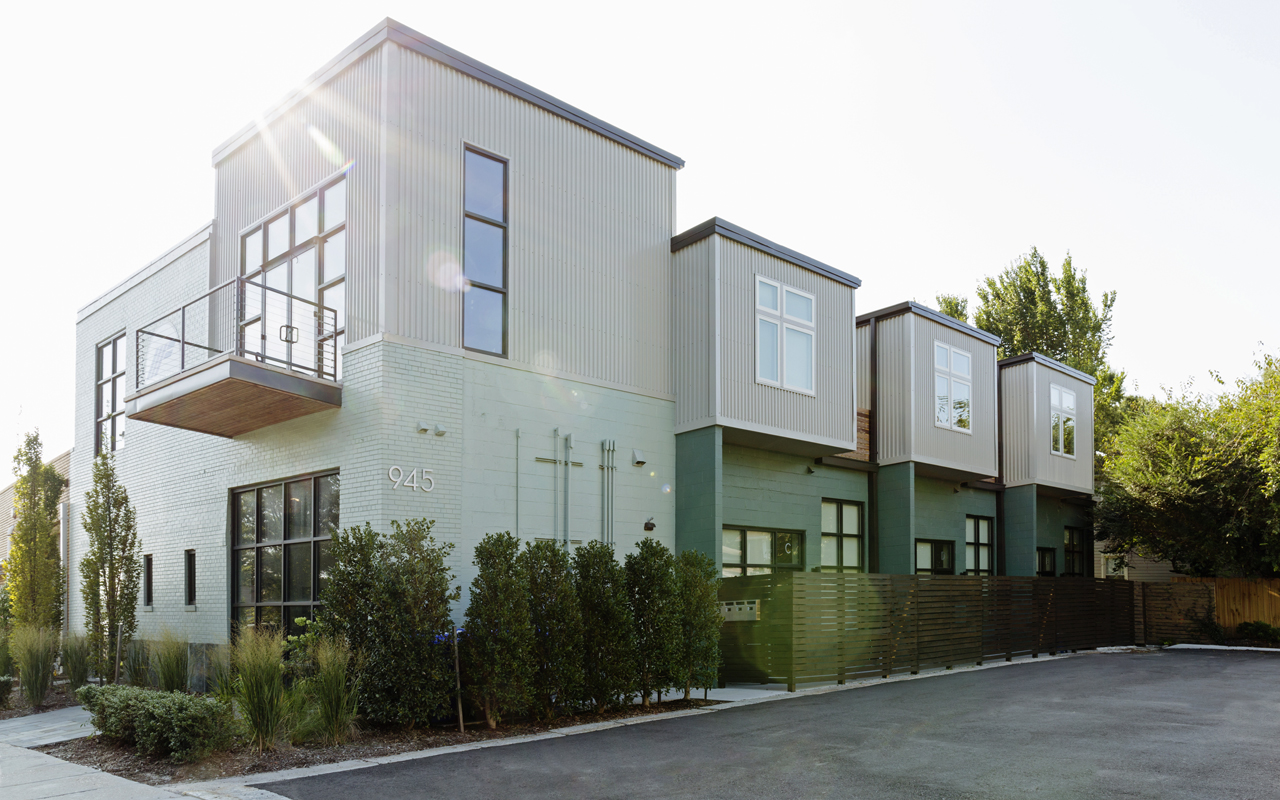
Profit and prosper with the best of Kiplinger's advice on investing, taxes, retirement, personal finance and much more. Delivered daily. Enter your email in the box and click Sign Me Up.
You are now subscribed
Your newsletter sign-up was successful
Want to add more newsletters?

Delivered daily
Kiplinger Today
Profit and prosper with the best of Kiplinger's advice on investing, taxes, retirement, personal finance and much more delivered daily. Smart money moves start here.

Sent five days a week
Kiplinger A Step Ahead
Get practical help to make better financial decisions in your everyday life, from spending to savings on top deals.

Delivered daily
Kiplinger Closing Bell
Get today's biggest financial and investing headlines delivered to your inbox every day the U.S. stock market is open.

Sent twice a week
Kiplinger Adviser Intel
Financial pros across the country share best practices and fresh tactics to preserve and grow your wealth.

Delivered weekly
Kiplinger Tax Tips
Trim your federal and state tax bills with practical tax-planning and tax-cutting strategies.

Sent twice a week
Kiplinger Retirement Tips
Your twice-a-week guide to planning and enjoying a financially secure and richly rewarding retirement

Sent bimonthly.
Kiplinger Adviser Angle
Insights for advisers, wealth managers and other financial professionals.

Sent twice a week
Kiplinger Investing Weekly
Your twice-a-week roundup of promising stocks, funds, companies and industries you should consider, ones you should avoid, and why.

Sent weekly for six weeks
Kiplinger Invest for Retirement
Your step-by-step six-part series on how to invest for retirement, from devising a successful strategy to exactly which investments to choose.
Few asset classes are better suited to retirement portfolios than real estate. If managed sensibly, a portfolio of real estate investment trusts (REITs) can provide a steady stream of retirement income that will last a lifetime.
To start, REITs are incentivized by the tax code to pay outsize dividends. REITs pay no corporate tax at the federal level so long as they distribute at least 90% of their taxable income to their investors as dividends. The U.S. corporate tax rate is a punishing 35%, so we’re talking about a lot of extra cash.
But a good retirement income portfolio needs more than just a high dividend yield. You also want rock-solid stability. If you intend to live on cash from your investments, you can’t afford to suffer a dividend cut or a major business setback. So your best REITs for retirement will tend to be moderate yielders in stable, non-cyclical subsectors. Experience also counts for a lot here – you typically want to trust REITs that have survived a recession or two with their dividends intact.
Today, we’re going to look at 15 of the very best REITs to generate long-term retirement income. You’ll notice certain areas are missing, such as malls and office buildings; these are too sensitive to economic swings, and their biggest players slashed dividends during the 2007-09 meltdown and aftermath. Instead, you’ll find 15 reliable companies that should continue paying their dividends like clockwork, come what may in the economy.
Data is as of Nov. 21, 2017. Dividend yields are calculated by annualizing the most recent quarterly payout and dividing by the share price. Click on ticker-symbol links in each slide for current share prices and more.

Public Storage
- Industry: Self-storage
- Dividend yield: 3.8%
- 1-year total return: 8.7%
- Public Storage (PSA, $211.32) is America’s largest self-storage landlord, and over its life, it has been a dividend-raising machine. The REIT has improved its annual dividend for eight consecutive years, and it was able to keep its payout stable throughout the 2008 meltdown. At current prices, PSA yields nearly 4%, which isn’t exceptionally high. But the stock has raised its dividend at nearly 16% per year over the past decade, which isn’t too shabby.
Few corners of the market are as durable as self-storage REITs.
“Self-storage requires modest capital outlay to operate, property taxes are skinny and the demand is inelastic,” says Ari Rastegar, founder of Dallas-based Rastegar Equity Partners, a private equity firm specializing in commercial real estate. “The recession resiliency of the asset class was showcased in 2008 by returning 5% cumulative with dividends. Another way to look at it is investors generate the rent of a class B multi-family apartment from what is essentially a shed.”
Public Storage has been down of late because of oversupply concerns, and shares have dropped nearly 25% from their early 2016 highs. However, this setback could be viewed as a buying opportunity in one of the very best REITs on the market.
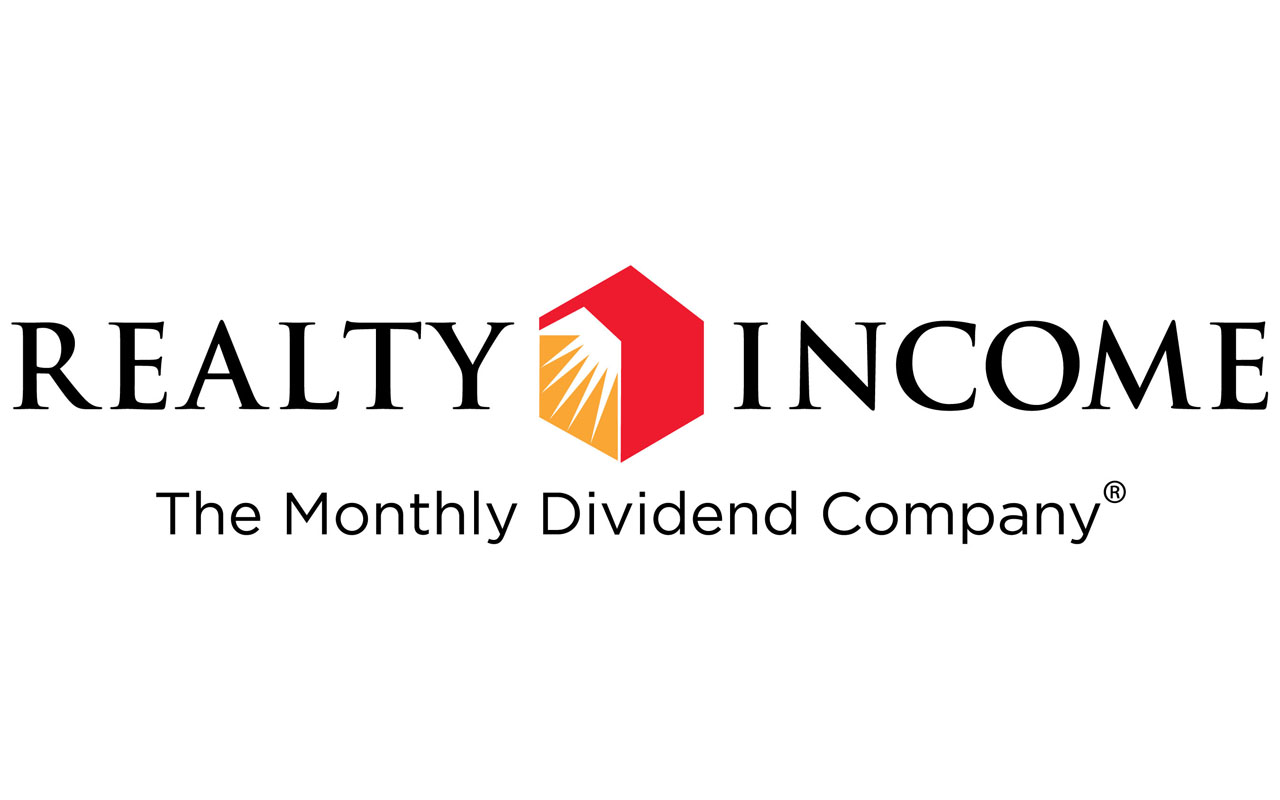
Realty Income
- Industry: Retail
- Dividend yield: 4.5%
- 1-year total return: 7.2%
Up next is a REIT that may be the most boring stock in the entire U.S. market: the “monthly dividend company” itself, Realty Income (O, $56.54). Realty Income owns a rock-solid portfolio of high-traffic retail properties that are about as close to "Amazon-proof" as you can get these days. (Think of your local convenience store or gym.)
We recently highlighted Realty Income among seven consistent monthly dividend stocks, and those points are worth reiterating today. Realty Income has paid 568 consecutive monthly dividends and has improved its payout for 80 consecutive quarters. Since its 1994 IPO, Realty Income has raised its dividend at a 4.6% compound annualized rate.
That might not sound exceptionally high at first. But think about it: Realty Income is a passive landlord that does little more than collect rent checks. Its leases are 100% triple-net, meaning its tenants are responsible for all taxes, maintenance and insurance. Generating that kind of dividend growth is pretty impressive when you consider how conservative the business model is.

National Retail Properties
- Industry: Retail
- Dividend yield: 4.5%
- 1-year total return: 6.8%
If any stock in the world could compete with Realty Income for the title of "most boring stock," it would be National Retail Properties (NNN, $42.66). Like Realty Income, National Retail manages a portfolio of high-traffic, free-standing retail properties such as pharmacies, convenience stores and gas stations.
About 18% of its portfolio is in convenience stores, with full-service restaurants and limited-service restaurants making up another 12% and 8%, respectively. From there, the industry concentration starts to drop off, with no other industry amounting for more than 7%. National Retail also is well-diversified across tenants. Its largest is gas station chain Sunoco, at a modest 5.2% of the portfolio.
In National Retail, you’re getting a portfolio of high-quality – if perhaps incredibly boring – properties that throw off regular, consistent cash flow. As with Realty Income, consider NNN as close to a bond as you can get in the stock market. Its dividend arguably is every bit as safe as the coupon of a high-quality corporate bond.
National Retail yields 4.5% at current prices, and it has raised its dividend every year since 1989. That’s the kind of consistency I expect in a retirement REIT.

Store Capital Corporation
- Industries: Retail, entertainment, education
- Dividend yield: 4.7%
- 1-year total return: 14.6%
- Store Capital Corporation (STOR, $26.25) is in the same basic line of work as the previous couple companies, as it is primarily a triple-net retail REIT. Store, by the way, stands for “Single Tenant Operational Real Estate,” and that pretty well sums up its business. Like its peers in the triple-net space, Store Capital focuses on freestanding properties, primarily in high-traffic retail areas.
The REIT’s portfolio consists of 1,826 properties spread across 382 tenants in 48 states. Full- and limited-service restaurants make up a combined 22.9% of the portfolio, with preschools and movie theaters making up another 7.6% and 7%, respectively.
Importantly, about two-thirds of the portfolio is rented to tenants in the service sector. That matters because services tend to be a lot more Amazon-proof. The last I checked, you couldn’t get your hair cut or get a root canal on Amazon.com. Online orders will continue to eat into brick-and-mortar sales, so we want to make sure our retirement income streams are as immune to these trends as possible.
At current prices, STOR yields 4.8%. And while Store Capital doesn’t have the long track record of some of its peers (it went public in 2014), it has done a good job of raising its dividend, and you should expect a lot more of that to come.
One last note: Store Capital has a big vote of confidence from Warren Buffett, whose Berkshire Hathaway (BRK.B) owns nearly 10% of the company.

Omega Healthcare Investors
- Industry: Senior care
- Dividend yield: 9.6%
- 1-year total return: 3.6%
- Omega Healthcare Investors (OHI, $27.10) is arguably the strongest player in the skilled nursing subsector. But importantly, Omega is not in the nursing home business. It’s a passive landlord that owns nursing homes. This distinction matters. Nursing homes are a surprisingly tough business to operate because their revenues are set mostly by government payers such as Medicare and Medicaid.
“You’re continuing to see pressure on skilled nursing operators, and that’s likely to persist for a while,” says Brad Thomas, editor of Forbes Real Estate Investor. “But Omega’s shares are cheap on any metric you want to use, and the dividend is safe and growing. Diversification is the best risk mitigator, and Omega is the best-diversified skilled nursing operator in the business.”
Omega has had some issues with some of its larger tenants. But its dividend still accounts for only 82% of its adjusted funds from operations (AFFO), and this is after the company reported a lousy quarter with a temporary decline in AFFO.
Omega has weathered plenty of storms in the past, and this current rough patch will be no different. While you wait for the market to see the value here, you can continue to collect Omega’s generous 9.6% dividend.

Ventas
- Industries: Senior care, health care
- Dividend yield: 4.8%
- 1-year total return: 13.6%
- Ventas (VTR, $64.32) is one of the largest and best-run REITs in the health care and senior living space with a market cap of nearly $23 billion and more than 1,200 separate properties. About 53% of its portfolio is invested in senior housing, and another 20% is invested in medical office buildings. The remainder is spread across hospitals, skilled nursing facilities and other assorted medical properties.
The demographic story essentially tells itself. The massive Baby Boomer generation is entering its golden years, which will spark unprecedented demand for medical-related and senior living properties. But even during a long period of mediocre demographic trends, Ventas has put up impressive numbers. It has managed to grow its funds from operations per share by 11% per year since 2001 – far better than the rates of Welltower (HCN) and HCP (HCP), its biggest rivals in the health care space.
Importantly, Ventas’ portfolio has virtually no exposure to Medicare and Medicaid; 94% of its revenues are from private-pay sources.
Ventas has been a dividend workhorse over its life, growing its payout at an 8% annual compound rate since 2001. That’s hard to beat. And at today’s prices, you’re getting a very respectable 4.8%. For reliable retirement income to last you through your golden years, Ventas is an attractive option.

LTC Properties
- Industry: Senior care
- Dividend yield: 4.9%
- 1-year total return: 9.0%
- LTC Properties (LTC, $46.71) is another sturdy REIT in the skilled nursing and senior living space.
“LTC” is short for “long-term care” – fitting, as 86% of the portfolio is invested in skilled nursing and assisted living properties, with the remainder invested in mortgages and notes. The portfolio is well-diversified, spanning 207 properties run by 29 operators in 28 states. And like many of the other stocks recommended today, the properties are rented with triple-net leases, meaning that taxes, maintenance and insurance are paid by the tenants. Once the properties are up and running, LTC does little more than collect the rent checks.
Importantly, most of the revenues earned by LTC’s tenants are paid by private patients and their insurers, not Medicare or Medicaid.
Since 2005, LTC has raised its dividend at a 4.9% compound annual rate, comfortably above the rate of inflation. And today, it pays a respectable 4.9% yield on a distribution that’s doled out monthly.
If you’re looking for retirement income, LTC is exactly the sort of stock you want to own. Its business model is backed by strong demographic trends in the aging of the Baby Boomers, and it has a long history of delivering for investors.

Physicians Realty Trust
- Industry: Health care
- Dividend yield: 5.0%
- 1-year total return: 7.1%
For a slightly different approach to the trend of aging Baby Boomers, look at Physicians Realty Trust (DOC, $18.37).
Physicians Realty is exactly what it sounds like; it’s a REIT specializing in medical office buildings. The portfolio is 97% invested in medical office buildings, with the remainder invested in hospitals and acute care centers.
There’s a lot to like about medical office properties. As the Boomers age, they require more frequent trips to their primary care physicians and to specialists. And while doctors do face continued risks to their livelihoods thanks to uncertainty surrounding the Affordable Care Act’s future, they’re likely to keep paying their rent. Medical office tenants also have far fewer problems with uninsured patients than hospitals and far less regulatory risk than nursing homes. Overall, it’s a good business to be in for a landlord.
DOC is a young REIT, having gone public in 2013. But it has excellent growth prospects in front of it, and it yields a respectable 5%.

Healthcare Trust of America
- Industry: Health care
- Dividend yield: 3.9%
- 1-year total return: 16.1%
Like Physicians Realty, Healthcare Trust of America (HTA, $30.95) invests in medical office buildings, which enjoy fantastic demographic tailwinds. Consider this: 10,000 people turn 65 every day, and people in that age range make four times as many doctor’s office visits as the broader population. Furthermore, Millennials finally are entering the family formation stage, and an increase in the birthrate will create even more demand for pediatrician offices.
HTA was founded in 2006, and the company says that since then, it has invested more than $6.6 billion in what now is about 24 million square feet worth of medical office buildings, scattered across 33 states. But the REIT also is disciplined in its acquisitions, buying properties next to major hospitals and university medical centers. It doesn’t waste its precious capital on marginal properties off the beaten path.
Healthcare Trust of America offers a respectable yield near 4% at current prices. That’s lower than some of the other REITs on this list, but that’s acceptable in light of HTA's lower risk profile.
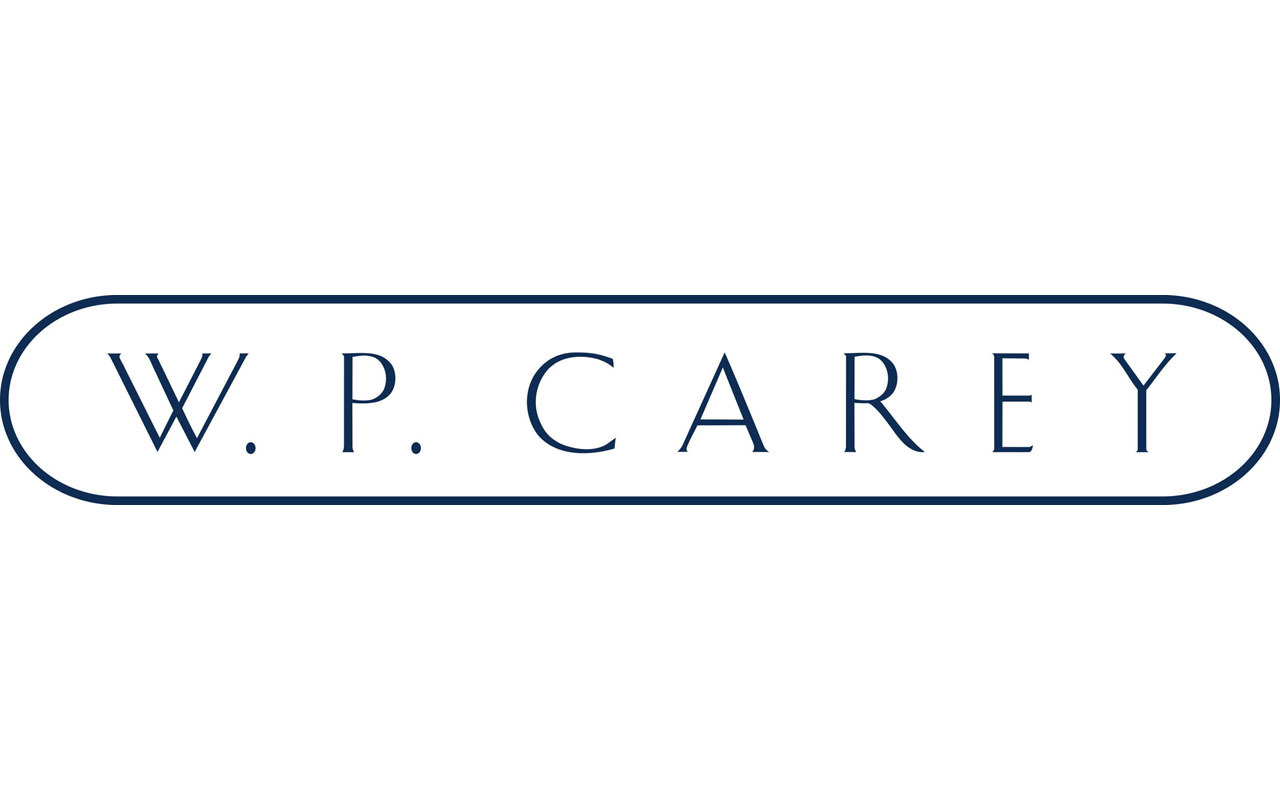
W.P. Carey
- Industry: Retail
- Dividend yield: 5.6%
- 1-year total return: 32.3%
- W. P. Carey (WPC, $72.32), much like the other retail REITs featured on this list, specializes in high-traffic, single-tenant properties rented out to tenants with good credit. Moreover, its leases are triple-net, so tenants are on the hook for all insurance, taxes and maintenance expenses.
The REIT holds 890 properties spread across 211 tenants. And W. P. Carey is a little different from its peers in that a significant piece of its property portfolio is overseas – 65% of its rents come from the United States, with most of the rest coming from Europe. This geographic spread balances out the portfolio and gives us another layer of diversification.
At current prices, WPC shares pay an attractive 5.6% in dividends, and the REIT has nearly doubled its payout over the past six years. The rate of dividend growth probably will be a little slower than that in future years, but that’s OK. A 5%-plus yield with mid-single-digit payout growth has plenty of appeal.
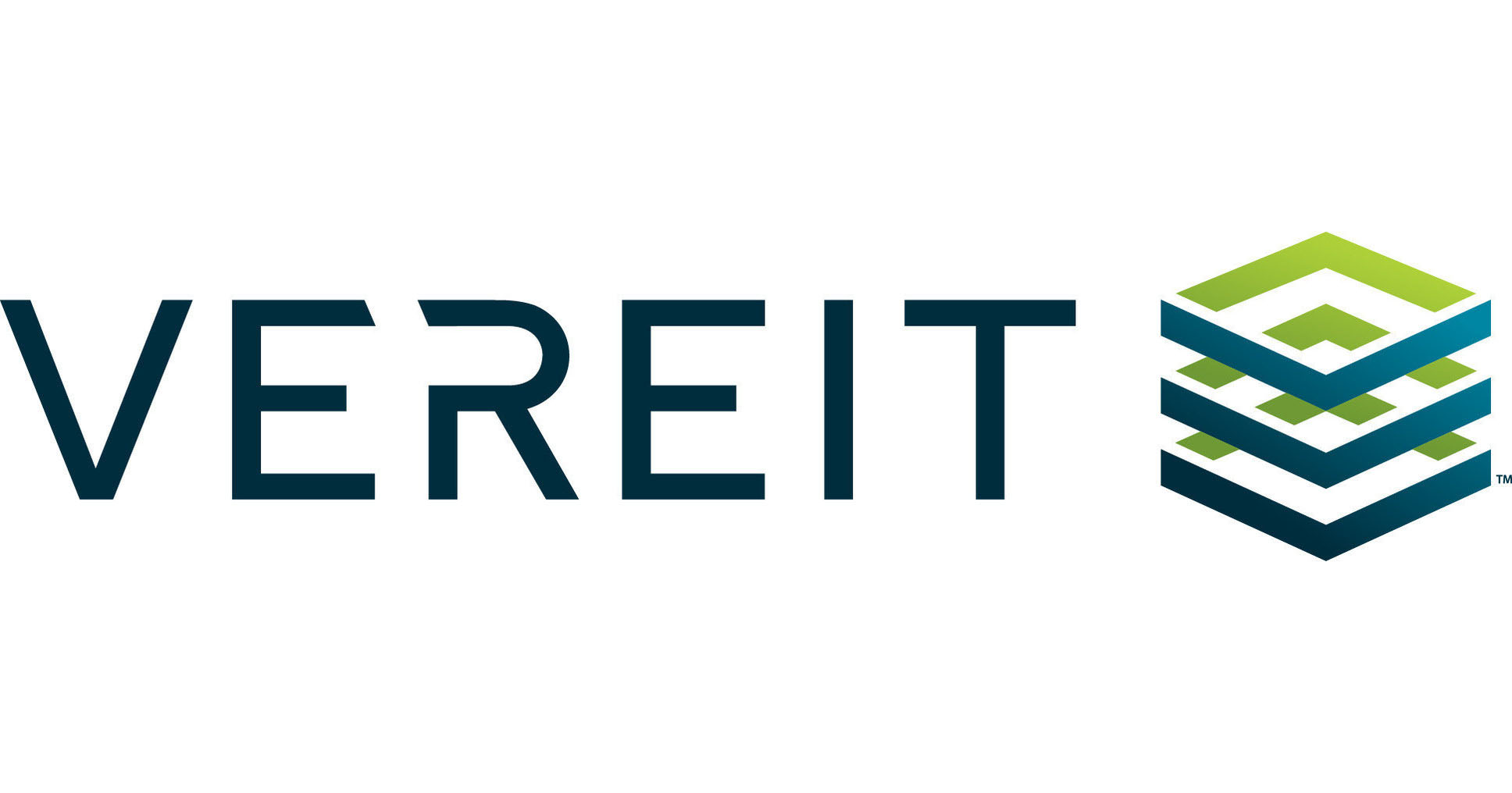
VEREIT
- Industries: Retail, office, industrial
- Dividend yield: 6.8%
- 1-year total return: 5.5%
- VEREIT (VER, $8.13) might seem like an odd choice in a list of best REITs to fund a retirement. After all, its predecessor, American Realty Capital, temporarily cut its dividend to zero following an accounting scandal in 2014. However, in the introduction, investors were advised to look for REITs that had successfully maintained or raised dividends through difficult times – not cut them.
VEREIT is an exception because all of the executives responsible for the accounting snafu have long since been fired. New management, led by CEO Glenn Rufrano, is squeaky clean and far less aggressive. This team is interested in slow, steady growth – the proverbial tortoise vs. the hare. That’s what we want to see in a retirement income REIT.
Some of VEREIT’s properties, by and large, look a lot like those of Realty Income or National Retail Properties. You see a lot of pharmacies, convenience stores and other high-traffic retail properties among the REITs biggest renters. VEREIT is very diversified by property type, in fact, with 41% retail, 23% restaurants, 20% office and 16% industrial.
One potential risk is a high concentration to a questionable restaurant tenant, Red Lobster. The perennially struggling seafood chain accounts for about 7% of the portfolio. That figure still isn’t high enough to put the whole portfolio in serious danger, but all the same, be glad that management is looking to divest it further. The sooner VEREIT fully eliminates the reckless legacy of its predecessor REIT, the sooner it will trade at a valuation more in line with its peers.
In the meantime, we can enjoy VEREIT’s high dividend of nearly 7%.
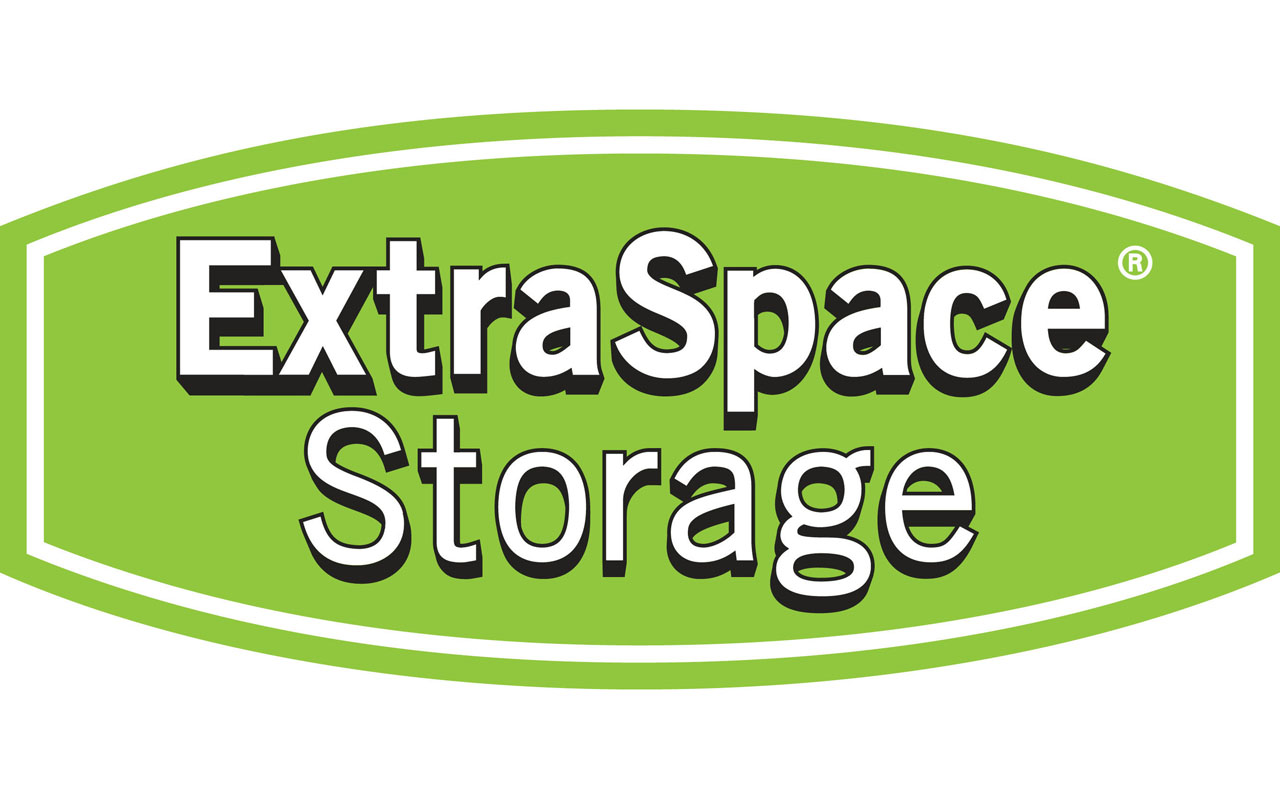
Extra Space Storage
- Industry: Self-storage
- Dividend yield: 3.6%
- 1-year total return: 32.9%
Public Storage was mentioned earlier as a solid retirement income REIT, but its self-storage competitor, Extra Space Storage (EXR, $87.66), also is a worthy contender.
Extra Space is smaller than Public Storage, with a market cap of $11 billion vs. Public Storage’s $36.6 billion. But it’s large enough to have ample diversification, with 1,513 properties spread across 38 states.
Storage units really are a dream come true for a landlord. They require next to zero maintenance, are cheap to build and are simple to operate. And certain demographic trends present some pretty attractive tailwinds for the sector. As the Baby Boomers embrace the empty nester lifestyle and downsize from their large suburban homes, they are opting to store their excess junk rather than dump it. And while that might seem ridiculously wasteful and unnecessary, millions of Americans do it. There are more self-storage facilities in America than there are McDonald’s (MCD) and Starbucks (SBUX) locations combined.
Extra Space isn’t the highest-yielding REIT, with a dividend yield of just 3.6%. But it has grown its payout by 290% over the past five years. And importantly, it has exactly the kind of risk profile you’d want to see in a retirement income REIT.

CubeSmart
- Industry: Self-storage
- Dividend yield: 3.7%
- 1-year total return: 26.3%
- CubeSmart (CUBE, $28.90) is the smallest self-storage REIT on this list, but still plenty big enough for our purposes. It has 908 properties, which is nearly double the number it had just seven years ago. This goes to show that, even in an established asset class such as self-storage, there can be ample opportunities for growth.
Part of this is due to the fragmentation of the industry. Many self-storage facilities still are “mom-and-pop” owned and can benefit from the investment and management expertise a larger operator such as CubeSmart brings.
CUBE shares pay a very respectable dividend at 3.7%. But the bigger story here is the dividend growth. CubeSmart has hiked its payout at a blistering 25% compounded annually over the past five years. That rate of dividend growth isn’t sustainable forever, and CubeSmart eventually will mature into a slower-growth company. But for now, this REIT remains an attractive combination of growth and income.
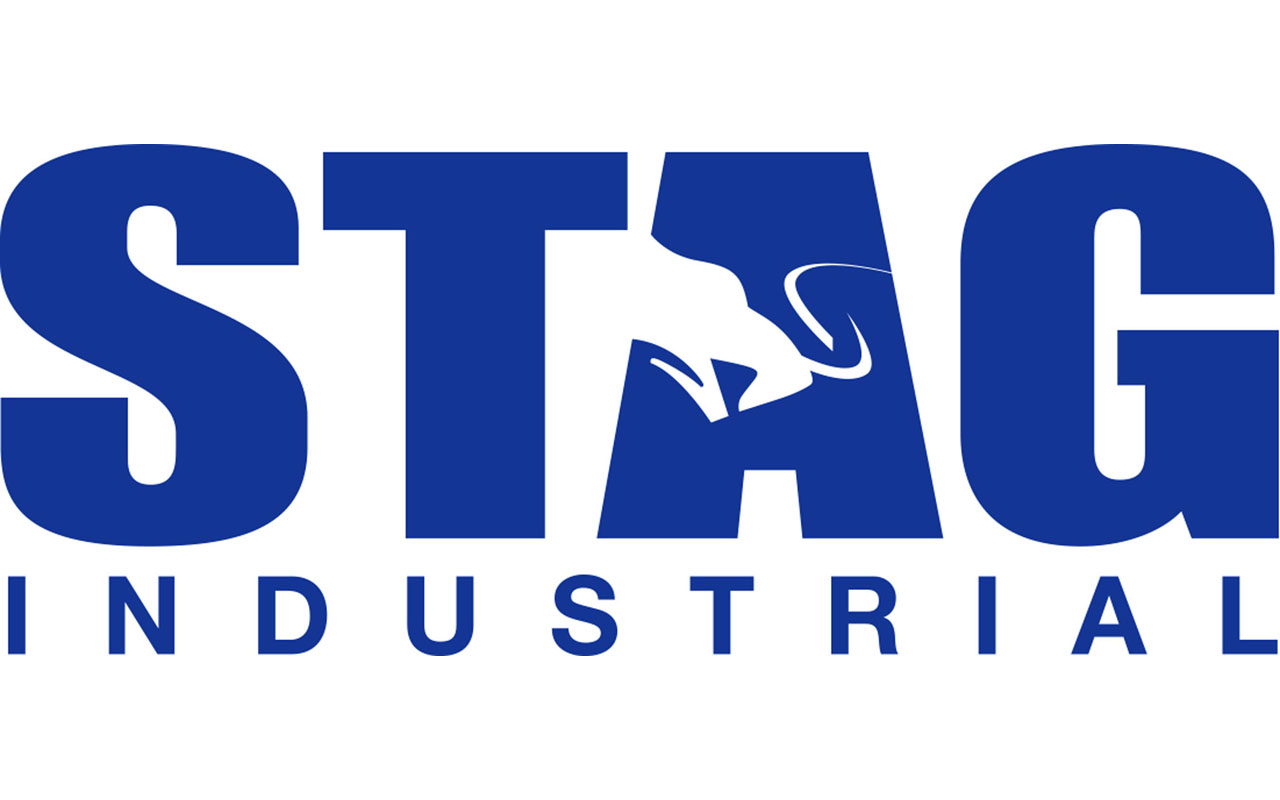
Stag Industrial
- Industry: Industrials
- Dividend yield: 4.9%
- 1-year total return: 32.6%
Most of these retirement income REITs have been concentrated in the health care and retail sectors, but Stag Industrial (STAG, $28.82) is a worthy addition that hails from the industrial sector.
Stag Industrial is a mid-cap REIT that’s still largely off most investors’ radar screens. That’s fine – its relative obscurity allows us to get it at a reasonable price.
“STAG” stands for “single tenant acquisition group,” which sounds a lot like Store Capital’s “single tenant operational real estate.” But STAG manages a very different kind of portfolio, specializing in the industrial and light manufacturing space. A warehouse or small factory would be a typical property for the REIT.
Stag went public in 2011 and has grown like a weed ever since. Its portfolio has expanded to more than 30 million square feet across 347 properties in 37 states. And unlike a glamorous hotel or oak-paneled office building, STAG’s gritty industrial properties require virtually no maintenance, allowing it to keep its expenses modest.
At current prices, STAG shares yield about 5%, which is respectable for a REIT these days. And since its 2011 IPO, Stag Industrial has grown that dividend by 35% – not a bad run for a boring industrial portfolio.

Blackstone Mortgage Trust
- Industry: Mortgages
- Dividend yield: 7.6%
- 1-year total return: 19.5%
Every company so far has been a traditional equity REIT that invests in properties, which makes sense. We’re building a retirement income portfolio, and we want that portfolio to be backed up by real, tangible assets.
But we’ll round out the list with one mortgage REIT (mREIT) in Blackstone Mortgage Trust (BXMT, $32.81).
Blackstone is different from most mREITs in that it doesn’t own mortgages and mortgage derivatives on single-family homes. Instead, Blackstone focuses on the less standardized (and more lucrative) world of commercial property financing. This matters because commercial loans, unlike home mortgages, tend to be based on floating rates – so Blackstone lacks the interest-rate risk faced by most typical mortgage REITs.
Blackstone's dividend yields 7.6% at current prices, which is higher than most of the equity REITs on this list. That is to be expected, as mREITs don’t have nearly the same long-term capital gains potential of equity REITs, and thus have to depend more heavily on their dividends for their total return.
That’s perfectly fine. At a nearly 8% yield, you’re already enjoying very decent annual returns.
Charles Lewis Sizemore was long O, OHI, STAG, STOR, VER and WPC as of this writing.
Profit and prosper with the best of Kiplinger's advice on investing, taxes, retirement, personal finance and much more. Delivered daily. Enter your email in the box and click Sign Me Up.

Charles Lewis Sizemore, CFA is the Chief Investment Officer of Sizemore Capital Management LLC, a registered investment advisor based in Dallas, Texas, where he specializes in dividend-focused portfolios and in building alternative allocations with minimal correlation to the stock market.
-
 Dow Leads in Mixed Session on Amgen Earnings: Stock Market Today
Dow Leads in Mixed Session on Amgen Earnings: Stock Market TodayThe rest of Wall Street struggled as Advanced Micro Devices earnings caused a chip-stock sell-off.
-
 How to Watch the 2026 Winter Olympics Without Overpaying
How to Watch the 2026 Winter Olympics Without OverpayingHere’s how to stream the 2026 Winter Olympics live, including low-cost viewing options, Peacock access and ways to catch your favorite athletes and events from anywhere.
-
 Here’s How to Stream the Super Bowl for Less
Here’s How to Stream the Super Bowl for LessWe'll show you the least expensive ways to stream football's biggest event.
-
 States That Tax Social Security Benefits in 2026
States That Tax Social Security Benefits in 2026Retirement Tax Not all retirees who live in states that tax Social Security benefits have to pay state income taxes. Will your benefits be taxed?
-
 What Fed Rate Cuts Mean For Fixed-Income Investors
What Fed Rate Cuts Mean For Fixed-Income InvestorsThe Fed's rate-cutting campaign has the fixed-income market set for an encore of Q4 2024.
-
 The Most Tax-Friendly States for Investing in 2025 (Hint: There Are Two)
The Most Tax-Friendly States for Investing in 2025 (Hint: There Are Two)State Taxes Living in one of these places could lower your 2025 investment taxes — especially if you invest in real estate.
-
 The Final Countdown for Retirees with Investment Income
The Final Countdown for Retirees with Investment IncomeRetirement Tax Don’t assume Social Security withholding is enough. Some retirement income may require a quarterly estimated tax payment by the September 15 deadline.
-
 What to Do With Your Tax Refund: 6 Ways to Bring Growth
What to Do With Your Tax Refund: 6 Ways to Bring GrowthUse your 2024 tax refund to boost short-term or long-term financial goals by putting it in one of these six places.
-
 What Does Medicare Not Cover? Eight Things You Should Know
What Does Medicare Not Cover? Eight Things You Should KnowMedicare Part A and Part B leave gaps in your healthcare coverage. But Medicare Advantage has problems, too.
-
 12 Great Places to Retire in the Midwest
12 Great Places to Retire in the MidwestPlaces to live Here are our retirement picks in the 12 midwestern states.
-
 15 Cheapest Small Towns to Live In
15 Cheapest Small Towns to Live InThe cheapest small towns might not be for everyone, but their charms can make them the best places to live for plenty of folks.
